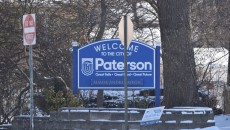Municipal officials have agreed to set up what’s called a 401(a) plan, tax-deferred retirement saving accounts, for retiring public safety employees. Members of the City Council approved a measure on Monday allowing mayor Andre Sayegh’s administration to set up the plan at the request of the police and fire unions.
Under the proposal, the city will deposit the accumulated leave time payouts for police and fire employees into the tax-deferred retirement savings accounts. Before the new year, the city is paying $1.2 million to 19 firefighters and police officers. The sum is a partial severance payout for the employees.
Municipal official disclosed the city has to pay approximately $5 million in accumulated leave time payouts to firefighters and police officers. The lot includes approximately 30 employees, said officials.
Setting up the plan will “cost the city nothing,” according to the approved measure. The novel approach will produce tax savings for police and fire employees. It will also produce a small amount in savings for the city.
Some council members were wary of creating the plan.
“I’m just trying to be careful here,” said Flavio Rivera, councilman at-large, chairman of the finance committee. “Something about it doesn’t feel right.”
Rivera asked whether the city has to match the contributions made by the retiring employees.
“There is no matching contribution,” said business administrator Vaughn McKoy.
Internal Revenue Service (IRS) guidelines allow matching contribution by the employer, but it is not mandatory, according to Michael Schiller of AXA Advisors of Edison. His firm will administer the plan for the unions. The firm has managed the fire and police unions 457 contributions since 2009.
“Matching contributions are voluntary,” said Schiller.
Rivera asked whether all municipal employees will be able to opt into the plan.
“Our plan is to offer it to whomever wants it,” said McKoy. However, other employees are unlikely to benefit from the offering because their labor contracts do not have terminal leave time that leads to big payouts for public safety employees upon retirement, he said.
Schiller said the city will be able to set criteria as to which employees are eligible to join the plan.
Rivera asked whether the city obtained an IRS determination letter. McKoy said that’s not necessary and will take a long time to secure.
Schiller said Lyndhurst uses such a plan for its police. Colleges in New Jersey also use it, he said.
Some council members complained the Sayegh administration presented the proposal at the very last minute.
Council president Maritza Davila scheduled a special meeting two days before Christmas to discuss and approve the measure. Meeting was advertised to start at 11 a.m., but Davila did not begin until 12 p.m.
“It’s a benefit for both sides,” said Mason Maher, president of the police Superior Officers’ Association, referring to employees and the city.
Maher said there have been discussions going back to the previous administration.
Many of the employees, who will be enrolled in the plan, retired in July, but are still waiting for the payouts. Employees have complained to their unions and council members over the situation.
Municipal officials said the city does not have the funds on hand to make the payments. The city is still waiting for its transitional aid award from the state; it has also begun making timely, monthly payments to the school district.
“We’ll come to some understanding. We will avoid litigation. Everybody is acting in good faith,” said the business administrator. “The unions appreciate what we’re doing and understand the challenges we have to overcome.”
Creating the plan buys the city more time to pay the retired employees their owed payouts, said the business administrator.
Email: [email protected]



